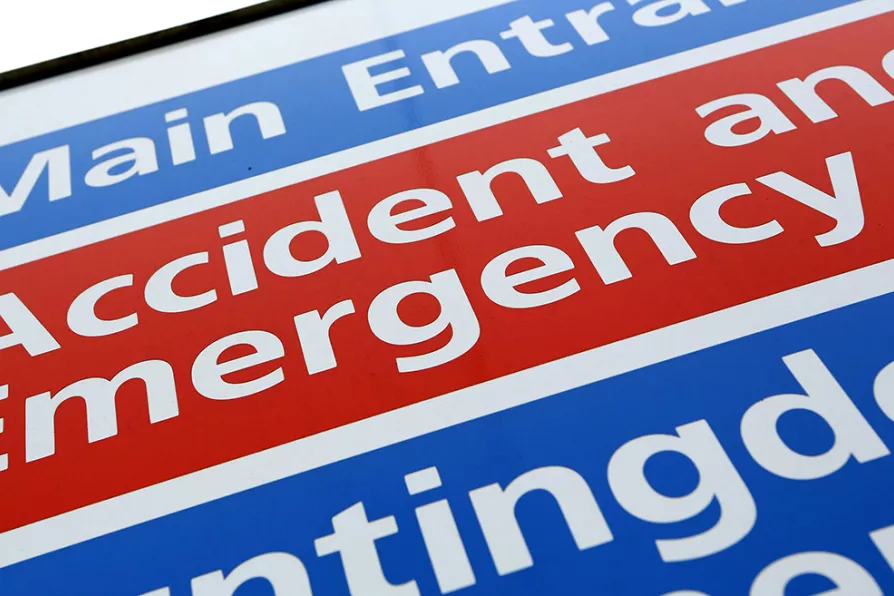
 An Accident and Emergency sign
An Accident and Emergency sign
SENIOR doctors have warned of an “alarming threat to patient safety” after figures show that more than a million elderly people waited over 12 hours in A&E last year.
A report from the Royal College of Emergency Medicine (RCEM) published today describes a growing crisis in England’s emergency departments, with older and frail patients increasingly left on trolleys in corridors for extended periods.
Figures obtained by the freedom of information act show that 1.15 million people aged over 60 waited more than 12 hours to be transferred, admitted or discharged in 2023 — up from 991,068 the year before and nearly triple the 2019 total of 305,619.
The RCEM found that the risk of a 12-hour wait rises significantly with age.
While patients aged 60–69 have a 15 per cent chance of facing such delays, the likelihood increases to 33 per cent for those aged 90 and over.
The college’s Quality Improvement Programme (QIP) also found widespread failings in the basic care older patients receive in A&E.
Data from 149 emergency departments covering nearly 25,000 patients revealed that only 16 per cent of over-75s were screened for delirium, a sudden change in mental function that is reversible but linked to increased risk of death.
Just under half of older patients were screened for falls risk, and only 53 per cent were assessed for general frailty, despite early detection being key to ensuring appropriate support.
The RCEM is calling for the introduction of “front door frailty screening” at every A&E, already underway in Scotland.
RCEM president Dr Adrian Boyle said: “The healthcare system is failing our most vulnerable patients — our parents, grandparents, great-grandparents.
“They aren’t receiving the level of care they need as they endure the longest stays in our emergency departments, often suffering degrading and dehumanising corridor care.
“It’s an alarming threat to patient safety. We know long stays are dangerous, especially for those who are elderly, and put people’s lives at risk.
Dr Boyle said more needs to be done to improve their care, including vital tests as soon as they arrive to raise the care they need and mitigate the risk of another visit to the emergency department.
“There are good pockets of practice, and emergency medicine clinicians are trying their best to deliver the care they need,” he said.
“It’s the system that’s the issue and will continue to disproportionally affect older people unless governments across the UK make A&E a political priority.”
Keep Our NHS Public co-chairman Dr Tony O’Sullivan said that the “appalling” delays are not the fault of NHS staff, but the “direct result of years of political failure.”
“Elderly patients are being left in corridors for hours, without dignity or the assessments that could save their lives,” he told the Star.
“This is not just a crisis in care – it’s a national disgrace. Emergency care needs urgent political attention and investment, not more excuses.
“Only a fully funded, publicly owned NHS can protect our most vulnerable.”
Society for Acute Medicine president Dr Nick Murch called the situation “a matter of grave concern.”
“It is clear that, despite the considerable dedication and hard work of multidisciplinary teams including emergency medicine, acute medicine and acute frailty services, these extended waiting times signify a profound failure within our healthcare system,” he said.
“We must ensure that 12-hour waits in emergency departments again become an infrequent exception rather than the norm.”
A Department of Health and Social Care spokesman said it is “unacceptable” that older people are waiting up to 12 hours or more in A&E and that the government’s 10-year health plan will ensure patients are seen promptly.













